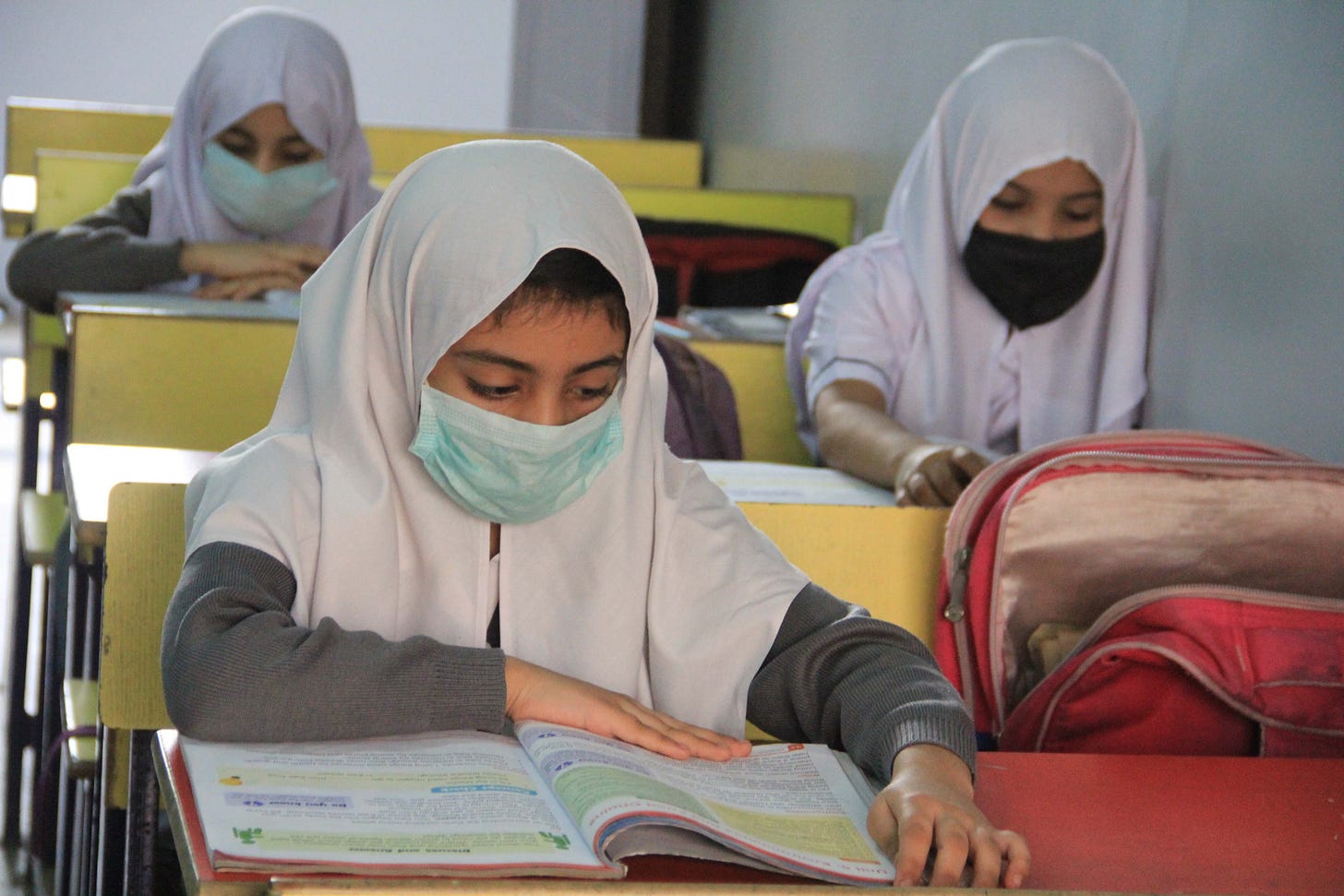This November, as vaccines for children finally became available, I decided it was time for a visit home. After five years of longing to visit Pakistan — and putting it off each year when faced with the frustration of passport renewals, visa applications for my children who are not Pakistani nationals, and, more recently, the pandemic — I felt a surge of possibility when my boys finally had the vaccine in their arms. And so, about 30 hours of travel door-to-door and $8,500 dollars later, we arrived to see my brothers, my nieces and nephews and my dear 81-year-old mother.
Much has changed in the country since my prior visit. For one, Imran Khan, the playboy cricket superstar of the 1980s turned purveyor-in-chief of Muslim values, is now the prime minister. Having campaigned on the resolve to hold avaricious politicians accountable and the promise of Naya Pakistan (New Pakistan), in which the common man would be lifted out of poverty, Khan’s self-chosen mandate set a high bar for success when he came to power in 2018. As I planned my trip back home, I was eager to find out just how much of his vision of Naya Pakistan had come into focus.
As we touched down on the tarmac, I started wondering how awful the airport experience would be. Each time I had visited in the past, the state of the Islamabad airport constituted a culture shock. With conveyor belts broken, luggage carts veering awkwardly on misaligned wheels and claustrophobic jostling and shoving, the airport always served as the first, and rather unpleasant, reminder that you were now in the Third World. But now, much to my surprise, not only was the new airport open for use, but it was indeed a stark improvement over the ramshackle, cattle market structure I remembered. Perhaps Naya Pakistan was not simply new but getting better after all.
Unfortunately, my hopes were thoroughly dashed the very next morning when I tried to take a shower. Turns out the one resource in which my country is genuinely rich — natural gas — has been so wretchedly mismanaged that we can no longer rely on geysers to heat water. That same day, there was a statement in the newspaper by the minister of information that “Pakistan will have no gas in years to come.” Talk about a cold shower.
In the days that followed, I was struck by the steep deterioration in living conditions for common folk and the astronomical price of literally everything. When I last visited in 2016, the annual rate of inflation was 3.8%; in December 2021 it was 12.3%. The main contributor to this inflationary hike is the price of food. That the poor manage to somehow survive in this New Pakistan is nothing short of a divine miracle, sufficient to make believers of even the most dedicated atheists.
And then there is the small matter of Naya Pakistan’s attempt to legalize censorship. The government has proposed legislation to create a centralized media regulation body that would oversee print, broadcast and digital media. Public criticism of Islam, the military and the judiciary are already prohibited. But this proposed law would also ban speech “demoralizing the armed forces'' or satirizing religious leaders, as well as “undue criticism” of the president and parliamentarians. As one prominent journalist put it, this bill, if passed, “will silence all dissenting voices in Pakistan, not only journalists but even the common citizens of Pakistan, and Pakistan will become an openair jail for all journalists.”
Equally harrowing is what is happening to education. Pakistan, for many decades now, has had both public and private schools. The quality of the education is markedly superior in private institutions, which, in general, have been free to determine their own curriculum, barring a few state mandated prerequisites for accreditation. Driven by the seemingly noble desire to eradicate “educational apartheid” and raise the standard of education for all, the federal government has introduced the Single National Curriculum. Framed as an “outcome of the promise of Naya Pakistan,” the proposed curriculum is at odds with its purported goals. Perhaps it does provide equality, but only to the extent that the overall quality of education, for everyone, will be degraded.
Keep reading with a 7-day free trial
Subscribe to Banished to keep reading this post and get 7 days of free access to the full post archives.




